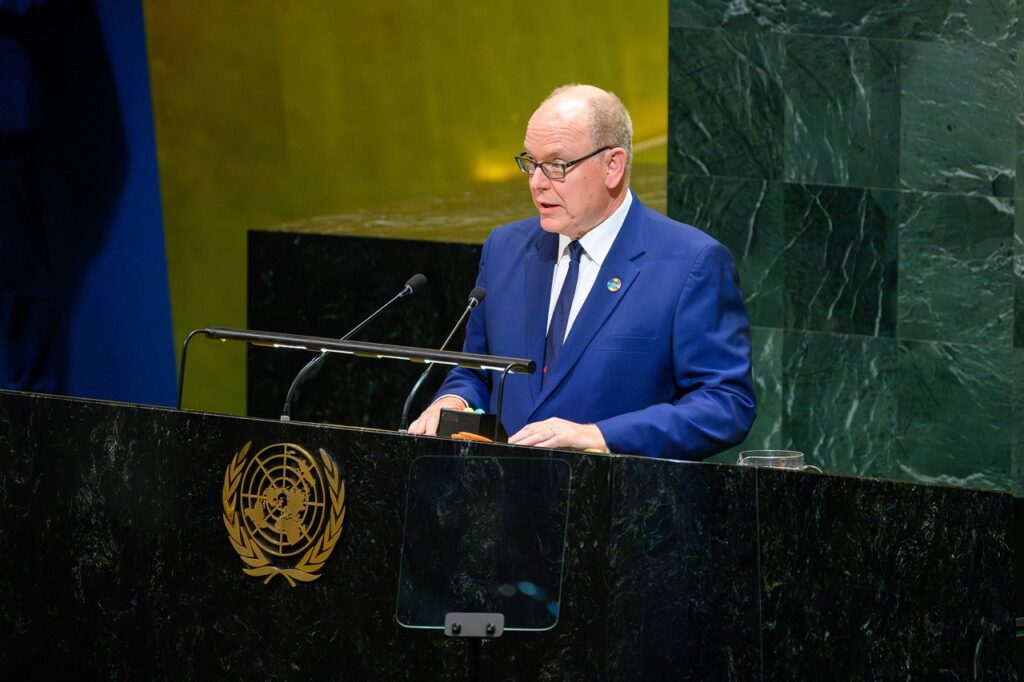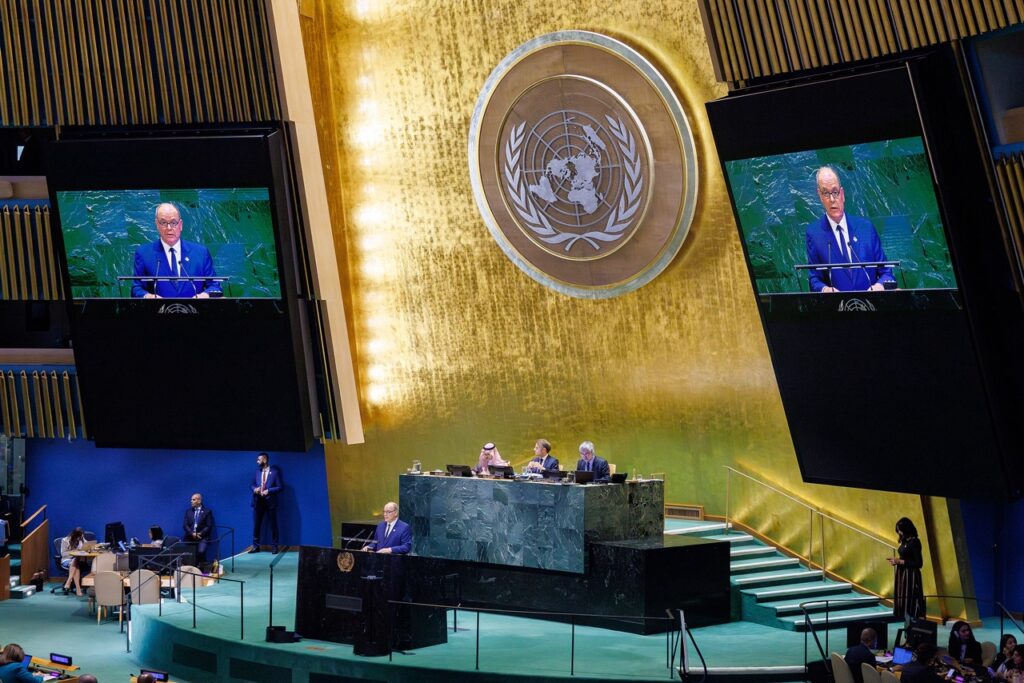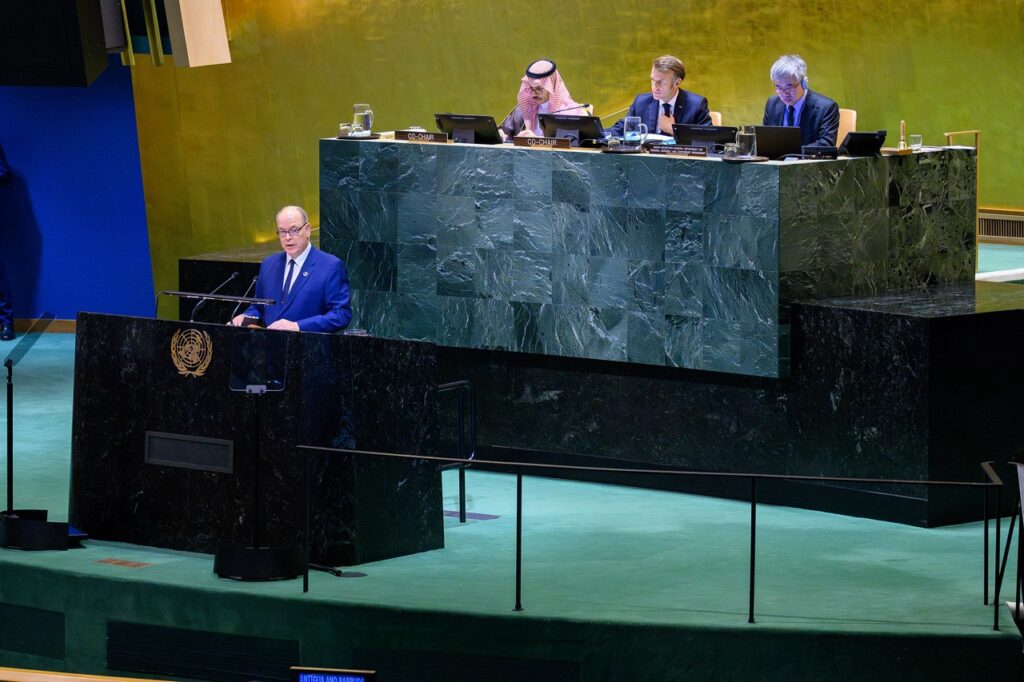Monaco officially recognises Palestine: Prince Albert II calls for two-state solution at UN

The Monegasque Sovereign announced the historic recognition at a high-level conference co-organised by France and Saudi Arabia on the sidelines of the United Nations General Assembly.
In New York for the 80th session of the United Nations General Assembly, Prince Albert II announced Monaco’s official recognition of the State of Palestine on Monday 22 September. The announcement was made during a conference regarding the peaceful settlement of the Palestinian question, co-chaired by France and Saudi Arabia.
“We also want to recognise Palestine as a State under international law, and I do so now before you,” declared the Sovereign in his address. Monaco joins over 150 countries that have already taken that diplomatic step.
A plea for balance and safety
In his speech, the Prince restated Monaco’s traditional position in favour of a balanced approach to the conflict. He defended “two inalienable rights: Israel’s right to live in security within secure and recognised borders, and the Palestinian people’s right to a sovereign, viable and democratic state.”
The Sovereign did not gloss over the recent tragic events, stating that “7 October 2023 is the starting point, in all its horror, of the current chaos.” He said any lasting solution was conditional on the release of all hostages and the disarmament of Hamas.


A call to build peace
Aware of the challenges to be overcome, Prince Albert II stressed the urgent need for action: “Peace can no longer remain a distant prospect: it must be embodied in institutions, in mutual guarantees, and in effective respect for the rights of each individual.” He concluded his speech with a now emblematic phrase: “Peace cannot be decreed, it must be built by a common will.”









